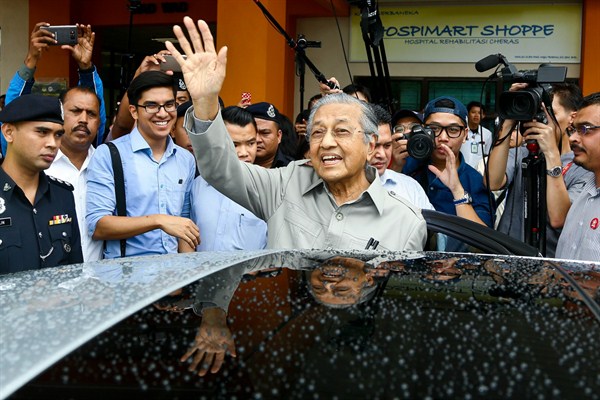Sometime later this year, Malaysia will hold a general election that will be one of the most closely watched polls in the nation’s history. The elections, which must be carried out by August but are expected to be held much sooner, will pit the ruling coalition led by scandal-ridden Prime Minister Najib Razak against a fractured opposition held together by the country’s longest-serving premier, Mahathir Mohamad. Both sides will be appealing to an electorate that has become increasingly frustrated by the country’s recent direction and future prospects.
Historically speaking, elections have been relatively uncontested affairs in Malaysia. The ruling Barisan Nasional, or BN, coalition—led by the United Malays National Organization, or UMNO—has handily won most of the 13 elections that have been held since the country’s independence in 1957, including under Mahathir’s leadership from 1981 to 2003. The BN remains the longest continuously elected ruling coalition in the world today.
But under Najib’s leadership, which began in 2009, the UMNO’s fortunes began to decline. At the same time, the opposition, which had been held together by Mahathir’s former deputy prime minister, Anwar Ibrahim, started making significant and unprecedented inroads. In the last general election in 2013, the BN held onto power, but lost its much-prized two-thirds majority in parliament. Moreover, the opposition won the popular vote for the first time in Malaysian history.

